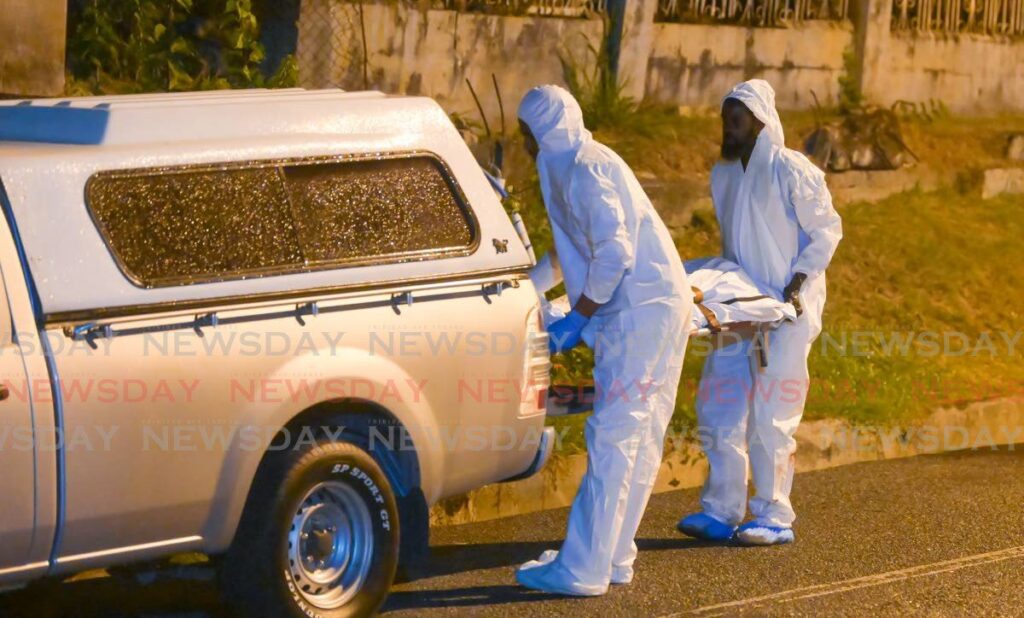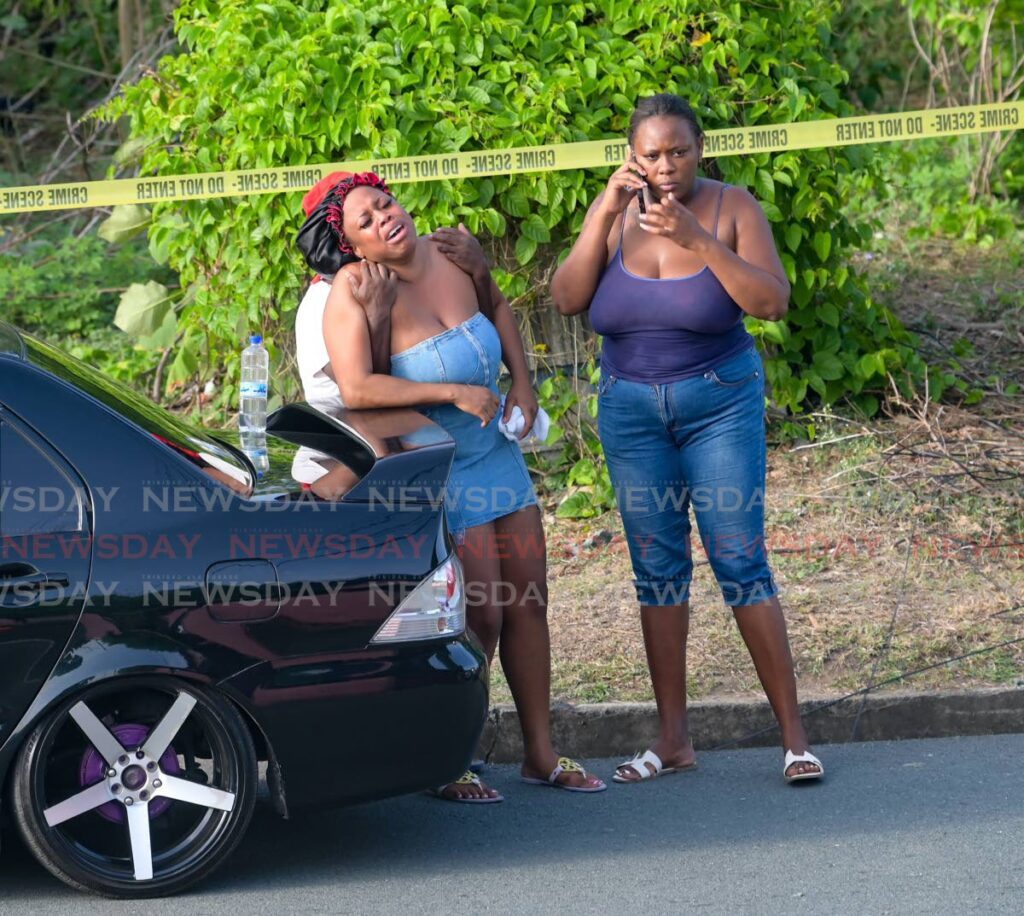Tobagonians living in fear after an unprecedented 16 murders

WITH an unprecedented 16 murders to date on the island, as of July 20, Tobagonians are predicting that its crime situation would continue to escalate despite the measures that are being implemented by the TT Police Service to reduce the scourge.
In fact, several of them who spoke to Newsday have even likened the island’s crime wave to the situation in Trinidad.
Entrepreneur Sharon Joseph (not her real name) opened a clothing and accessories store in Scarborough about one year ago.
At that time, she said she was drawn to Tobago’s beauty, serenity and low crime rate.
But Joseph is now questioning that decision.
“When I first came to Tobago, I used to boast about Tobago’s safety. I could leave my door open and everybody used to say the island is safe. You don’t have to worry about becoming harmed in any way. You could just go about your business and live freely. “But within that space of time, the crime has increased and I no longer feel safe. I feel like I am in Trinidad right now,” she said, a forlorn look covering her face.
Joseph noted the attempts being made by Police Commissioner Erla Harewood-Christopher to address specifically murders and gun violence, most of which are being carried out by gangs. But she believes there is still there is still the need to get to the root cause of the problem.
“I think the TTPS does not understand what the root problem is. So if they don’t understand what the problem is, how could they even solve it in the first place? What is the reason for the increase in crime? Why is it so out of control now compared to all of the years before?”
Joseph said crime also has affected her social life.
“When I first came here, I was happy. I felt so relieved. I didn’t have to look over my shoulder. I didn’t have to be as cautious as I was in Trinidad. But now I don’t have that thinking anymore.
“Now I have to think the same way as I was in Trinidad. Now I have to lock my doors, watch over my shoulders, make sure I go home a certain time, look at what taxis I am going in, look at the people around me, because it is not the same and this only happened in the space of a few months.”
Another female entrepreneur, who owns a bar in west Tobago, said she had developed a reputation for “pulling all-nighters.”
But those days, she said, are no more.
“I used to go all five in the morning on weekends. Here was like a dockside. But now by 9 pm we inside,” she said of her business place, which is known for its old school music and rootsy atmosphere.
She said not so long ago, some bar owners could have opened for long periods “but now you have to lock up because you are scared they might come at you next.
“The other day we heard it had three shootings – in Plymouth, Black Rock and Mt Pleasant -and we had to rush to close because we don’t know what is their aim. We just don’t feel safe as business owners.”
The woman, who has been in business for more than a decade, believes many perpetrators are not being arrested and charged because of their familial ties to police officers on the island.
“Tobago is very family-oriented and is about who you know.”
She related the story of how a photographer she had hired for a special occasion never delivered the photos despite her pleadings.
“I reported the matter, spoke to many police officers back to back but nothing because you never know who is connected to him. Too many people know one-another so the police will cover up.”
She welcomed the infusion of more Trinidad-based policemen in Tobago to carry out special tasks as well as the plan to rotate officers from both islands.
“I think that is the best thing because some things have to change.”
But she believes the crime situation requires someone at the helm with the personality of former police commissioner Gary Griffith.
“When you hear Gary coming long time, even the men who doing the crime frighten. Look at these murders in Tobago, they eh finding nobody because all of them (Tobago police) connected.”
Taxi driver Sean Guerra, who is originally from Trinidad, described Tobago’s crime situation as disgusting.
“It is not like how Tobago used to be and it is a very scary situation,” he told Sunday Newsday.
“I have been working taxi for about ten years and this is the worst have ever seen it. Tobago was never like this. It used to be a peaceful place. It never had this set of killing and nonsense.”
His passengers, he said, have also expressed their discomfort.
Guerra, who services the communities of Plymouth, Whim, Black Rock, Mt Irvine, Mary’s Hill and Les Coteaux, said the change came practically overnight.
“For the years that I have been here Tobago has changed drastically. Everybody angry, bitter, they blood close to their skin, everybody on edge. It is like on the movies. It is not a nice feeling.”
But he said he had to work to pay his bills.
“People don’t have a choice. We just have to face the music.”
Karen Douglas (not her real name) also works as a taxi driver in west Tobago. She said crime has made her work unnecessarily burdensome.
“I often feel terrified,” said Douglas, who is in her twenties.
“I always have to be mindful of how I communicate, the area I transport and the time I transport passengers. You never know the type of persons hiding behind those faces.”
She added she is also unwilling to venture into certain communities deemed as hotspots.
“So crime also affects persons who travel on a daily basis because of the areas they may need transportation to.”
Saying she regularly turns down hired jobs for fear of the unknown, Douglas recalled the death of Shellon Walters-Joseph, whose body was discovered over a precipice at Saw Mill Trace, Mt St George, on May 4. Her car was then used in a drive-by shooting in Speyside.
Douglas believes Tobago’s crime situation is escalating rapidly.
“I can see it becoming worse. My social life has been one of discomfort in public settings and a life where I always feel the need to watch my back because you never know what intentions people have in store for you.”
As a businesswoman operating in the tourism sector, Kaye Trotman says she is deeply concerned about the escalating crime situation.
“Crime is not just a social issue, it significantly impacts our economy, deterring tourists, investors and increasing operational costs for local businesses,” said Trotman, president of the Tobago Unique Bed and Breakfast and Self-Catering Association.
“The troubling rise in violent crimes does not only disrupt business operations but it also fosters a climate of fear and this has far-reaching social and economic consequences.”
Trotman, owner of the Bon Accord-based Native Abode, said while there have been efforts to address the scourge through increased policing, these measures are basically reactive and have been proven to be inadequate in terms of dealing with crime in a sustainable manner.
She argued the root causes, namely unemployment, lack of education and social inequality, remain unaddressed.
“Attention must be given to preventative measures to stem the flow of creating new criminals.”
Trotman suggested that a comprehensive approach is needed to tackle crime effectively.
She believes it must be one that focuses on job creation and entrepreneurial paths to keep people away from crime. It must also focus on education and youth engagement through programs to equip young people with skills for productive careers.
Trotman said there must also be community buy-in to build trust between law enforcement and residents through community policing. The judicial system also must be strengthened for swift and fair justice, she believes.
Trotman said while current efforts are well-intentioned, they are insufficient.
“We need a holistic approach that addresses the socio-economic factors driving crime. It's time for decisive action to secure a safer and more prosperous Tobago.”
At a news conference on July 9 at the Central Administrative Services – Tobago, Scarborough, THA Chief Secretary Farley Augustine said the island’s tourism sector may not be able to withstand a further increase in murders and violent crime.
He told reporters he was satisfied with the strategies that were announced at the National Security Council meeting, which preceded the briefing.
Augustine said Tobago should experience a reduction in murders in comparison to the first half of the year.
The Prime Minister, as head of the council, presided over the meeting, which included National Security Minister Fitzgerald Hinds, the Police Commissioner and members of her executive as well as head of the Tobago Division ACP Collis Hazel and other senior officers.
Harewood-Christopher, at the news conference, said she had deployed additional officers from the Inter-Agency Task Force and the Guard and Emergency Branch, to Tobago, in an effort to reduce the surge of murders and other gun-related crimes.
She said as of July 8, officers were also transferred to Tobago to provide training to frontline officers.
“Additionally, we will increase our intelligence focus on the island of Tobago. We will provide training to develop the capacity of the officers in terms of intelligence gathering and investigations.”
Harewood-Christopher said the police will increase their technological capabilities with the use of CCTV cameras as well as intelligence gathering by way of cybercrime and additional forensic capabilities.
Hinds said more CCTV surveillance cameras would also be installed in Tobago to assist with the crime fight.


Comments
"Tobagonians living in fear after an unprecedented 16 murders"